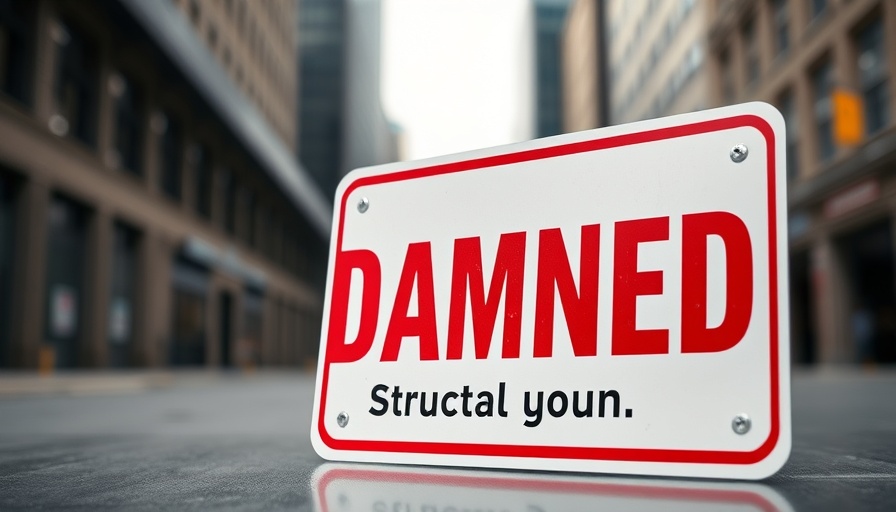
Understanding the Hidden Forces Shaping Insurance Regulation
In recent discussions about the insurance industry, one critical concern has emerged: the issue of regulatory integrity. Jay Feinman, a distinguished law professor, warns us that it is not only corruption but also a more insidious influence called "cultural capture" that plagues our insurance regulators. This phenomenon occurs when those in regulatory positions start to adopt the perspectives and priorities of the very industries they are meant to oversee. For South Carolina residents navigating the often-tumultuous waters of property damage claims, recognizing these influences can be the key to understanding your rights and how to effectively confront insurance companies.
The Role of Regulators: Are They on Your Side?
Feinman highlights that regulators are influenced by their constant interactions with insurance executives and lobbyists rather than with policyholders or consumer advocates. This lack of balance can lead to a situation where regulators overlook unfair practices and focus instead on convenience for the companies they regulate. For example, if an insurance adjuster uses dubious tactics to deny a claim, regulatory oversight may not sufficiently address or even recognize these abuses. As consumers, being aware of these tactics, like bad faith insurance practices, can empower you to stand up against unjust treatment.
Cultural Capture: A Systematic Issue
Cultural capture is subtle but pervasive. Academically, it refers to how regulators internalize industry values, which can result in an inadequate response to systemic issues such as unfair claims handling. This also explains why market conduct studies focus on trivial issues rather than addressing substantial patterns of harm affecting policyholders. By understanding how these systemic weaknesses are embedded in the regulatory structure, South Carolina residents can better equip themselves to challenge unjust claim denials.
The NAIC: More than Meets the Eye
The National Association of Insurance Commissioners (NAIC) often serves as the body regulating states' insurance laws. However, it is vital to recognize that it's a private entity that lacks direct accountability to consumers. Many of its members have ties to the insurance industry, which raises important questions about their collective objectivity. The situation becomes even more alarming given that decisions affecting policyholders can reflect the priorities of insurers rather than the needs of consumers. Understanding the dynamics at play helps illuminate why insurance settlement delays and denials occur, and how this affects residents in South Carolina.
Practical Strategies to Protect Yourself
Knowing the potential motivations behind insurance company tactics equips policyholders to fight back more effectively. For example, if you encounter tactics commonly used by adjusters to delay or deny your claims, such as disputing minor details or asking for irrelevant paperwork, be prepared to challenge them.
Here are some actionable tips for South Carolinians looking to safeguard their insurance rights:
- Keep Detailed Records: Document every interaction you have with your insurance company and adjuster. This includes dates, times, and summaries of conversations.
- Understand Bad Faith Insurance: Familiarize yourself with your rights as a policyholder and the concept of bad faith. This knowledge can serve as leverage in negotiations.
- Don't Hesitate to Escalate: If you receive unreasonable treatment, consider escalating your case within the insurance company or consulting an attorney.
The Emotional Toll of Dealing with Claims
Navigating insurance claims can be an overwhelming experience, especially for those already dealing with property damage. Many individuals and families feel powerless against the complex tactics insurance companies use to minimize payouts. Recognizing emotional responses, such as frustration or anxiety, is vital as it can affect judgment during dispute resolution.
Common Misconceptions About Insurance Adjusters
Another issue to consider is the myths surrounding the role of insurance adjusters. Many think that adjusters are purely advocates for the policyholders, but they're ultimately working for the insurance company. Understanding this could help recalibrate expectations and approach negotiations with a more strategic mindset.
Take Control of Your Claim Process
By being informed about these dynamics and aware of the many tools available to you, South Carolina residents can build a much stronger case against their insurers. Educated policyholders are not merely passive recipients of insurance coverage; they are empowered participants in the process who can hold their insurers accountable.
As you navigate your insurance claims, remember the insights shared about regulatory processes and the behavior of insurance companies. An informed approach can not only help you fight a denied claim but also change the narrative around how claims are handled. You deserve fairness in your claims process.
 Add Row
Add Row  Add
Add 




Write A Comment